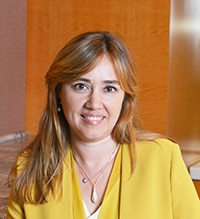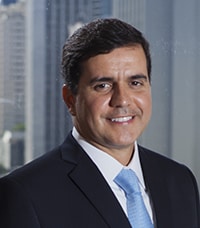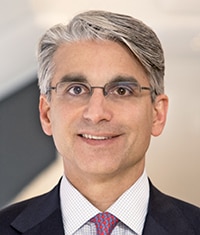Economic and political factors could force companies to put acquisition plans on hold, making for an unpredictable 2018. But this year’s Best M&A Bank winners are still optimistic about future growth prospects.
The global mergers and acquisitions market in 2017 was solid. Across the globe, 49,448 deals were announced, an increase of 2% from the 48,250 deals in 2016, according to law firm Jones Day’s 2017 Annual M&A Review. Deal value remained about the same, at $3.6 trillion. “The picture is one of incremental acquisition, with transformative transactions (especially those involving the United States) potentially deferred into 2018,” writes Lyle Ganske, worldwide Mergers and Acquisition practice leader with Jones Day.
The reason firms held off, Ganske noted, include uncertainty around tax laws, Brexit and Chinese capital controls, among other issues.

Still, the firms that earned Best Investment Bank awards generated strong business. “We had a great year in 2017 and are still very enthusiastic about the way things are going,” says Leandro Miranda, head of Bradesco BBI’s Investment Banking division, which won Best M&A Bank for Latin America.
Miranda notes that 2018 is a presidential election year in Brazil. As a result, he expects greater volatility in the M&A market as the elections draw closer. “But compared to the last two election years, it will be good,” he says, adding that the Brazilian economy is back on track. Interest rates are declining; inflation is less than 3% (it topped 10% as recently as 2015, according to inflation.eu, a provider of inflation data); banks are working out any bad loans still on their books; corporations are in better financial shape and the employment rate has improved. “We have a scenario where we’re able to grow,” Miranda says.
He expects “healthy, constant growth” in foreign investment in Brazil. The lower cost of funds will allow Brazilian companies and investors, as well as global investors, to participate more actively in M&A.
In fact, cross-border deals around the globe likely will continue. “We see structural growth of cross-continental M&A deal flow, even though a recent potential return to protectionist policies may cause a temporary slowdown of such secular trends,” says Piero Novelli, co-executive chair of Global Investment Banking with Zurich-based UBS, which earned the top global spot among M&A banks.
IS Investment, a leading investment bank in the Turkish capital markets, was established in 1996 as the investment-banking arm of Isbank Group in Istanbul. It also enjoyed a successful 2017, says Efsane Cam, IS Investment’s M&A director. Of the nine deals the bank completed, three were cross-border transactions. Most of the M&A deals in Turkey are valued between $50 million and $300 million, Cam says. Market volume for 2017 was around $10 billion, down from an average of $15 billion over the past 10 years. A variety of factors, including GDP growth, the stability of foreign exchange rates, increasing corporate governance in companies, and acquisition financing opportunities impacted the total volume of deals, Cam says. The most active M&A sectors are energy, consumer goods and manufacturing.

Over the past 10 years, foreign direct investment and foreign investors’ share of M&A volume averaged close to 50%; in some years it reached 90%, Cam says. One example: IS Investment played advisory roles in the acquisitions by Mahindra & Mahindra, an Indian agricultural vehicle and equipment company, of Hisarlar, a Turkish agricultural-machinery company, and the foundry and tractor businesses of Turkey-based Erkunt Group. In total, the deals were worth approximately $150 million.
Private-equity deals typically average 15% of total volume in Turkey, reaching about 35% some years. “There are local private-equity funds with dedicated funds only for Turkey, as well as international funds that are actively looking for M&A deals,” Cam says.
Privatization deal volume declined over the past three years, due to fewer assets. IS Investment advised on a key privatization project—the acquisition of Turkish Petroleum Distribution by Zülfikarlar Holding for 490 million Turkish lira ($125 million). Through the deal, Zülfikarlar added 380 gas stations to the 330 it had before the transaction, successfully integrating a network larger than its own.
The percentage of deals which entail acquiring a majority share in a company are increasing, says Cam, and now top 55%. “In Turkey, strategic deals are always more popular,” she says. “They’re generally completed with the sale of a majority stake.”
Deal Attributes
As the M&A market continues to show strength, firms that engage M&A banks look for several qualities. “Post-M&A integration is extremely important,” Cam says. “Companies need to understand the dynamics and work flow and culture of the company they are acquiring before implementing their own values. Sudden disruptions can sometimes cause greater difficulties.” Having or maintaining local management throughout the transition period may be useful,
she adds.
Not surprisingly, experience and expertise are also critical. IS Investment Bank’s experience, for instance, goes back to the 1980s and the establishment of the Turkish capital markets. Companies also are looking for “comprehensive financial solutions,” says Miranda. Given the complexity of most M&A deals, “they need bankers with a deep knowledge of industry, one who can be creative with ideas and can execute transactions.” Bradesco possesses solid knowledge of the industries in which it works, top-flight researchers, and the largest distribution team in Brazil, says Miranda.
The ability to offer the “best advice and execution excellence remain the most solid foundations of a successful and thriving M&A business,” Novelli adds, noting that UBS’ global reach, sector knowledge, vast transactional experience and investor knowledge can provide truly differentiated insight.

WhatDoes the Future Hold?
Of course, relationships still matter. “Large-cap corporate M&A advising is still fundamentally a relationship-and trust-based business where transactional expertise, sector insight and global reach provide the most solid platform for best advice,” says Novelli.
In Brazil, most of the presidential candidates are expected to roughly follow current policy and remain friendly to capital markets, both of which should bode well for continued growth in mergers and acquisitions, says Miranda.
Novelli sees a rising number of unsolicited and hostile deals, as well as shareholder activism, particularly in continental Europe.
“There is a continued focus at the C-suite level on both finding new growth opportunities and in portfolio rationalization,” says Michael Santini, co-executive chair of Global Investment Banking at UBS. “As companies have seen increased shareholder activism, they are ‘self-activating’ to stay ahead of the curve.”
|
BEST M&A BANKS 2018 |
|
|
Global |
UBS |
|
North America |
Goldman Sachs |
|
Western Europe |
Goldman Sachs |
|
Central & Eastern Europe |
IS Investment |
|
Asia-Pacific |
CIMB |
|
Latin America |
Bradesco BBI |
|
Middle East |
Samba Capital |
|
Africa |
Standard Bank |



